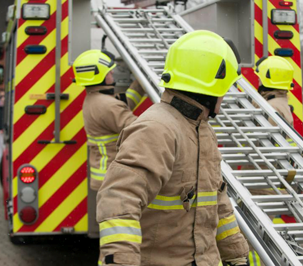Firefighters are no longer turning out for most automated alarms because so many turned out to be false alarms.
East Sussex Fire and Rescue Service said that it “has officially launched its new approach to automatic fire alarms in many commercial premises”, adding: “It’s because of the high number of times alarms sound and resources are sent to the scene when there is no actual fire.”
George O’Reilly, group manager for protection, said: “These cause significant disruption to our training, fire safety and community safety work and, crucially, while firefighters are investigating the cause of the alarm, they cannot attend emergencies where lives are at risk.
“We have been working with premises to help them understand how they can help reduce false alarms from automatic systems. We also want to stop fires in the first place and have lots of advice on our website about how to improve fire safety in commercial premises.”
He added: “The most important thing to remember is that if you have a fire or can see other signs of a fire such as smoke, call 999.
“If you are in a commercial building and the fire alarm sounds, follow the evacuation guidance and instructions from staff.
“Working with businesses, we can help make sure our firefighters are using their time effectively, responding to emergencies, not false alarms.”
The fire service said: “Because of all of these impacts, our Service no longer attends fire alarms operating in low-risk commercial premises, between 9am and 5pm Monday to Friday (except bank holidays) unless we receive telephone confirmation that there is a fire.
“Low-risk premises are classified as premises with no sleeping risk, such as offices, shops, factories, pubs, clubs and restaurants.
“In these premises, when people are present, trained members of staff are able to confirm there is a fire and call 999 for the fire service. We then send the appropriate resources to deal with the incident.
“When people are not present, such as when businesses are closed typically between 5pm and 9am and at weekends and bank holidays, the life risk is very low. However, the impact on the business may be greater.
“Therefore, at these times we continue to respond to automatic fire alarms in the normal way.
“What action should be taken? Some of the measures we would expect management to carry out include
- Reviewing the premises fire risk assessment and emergency plan
- Training adequate numbers of staff to investigate fire alarms to establish the cause and call the fire service if there is a fire
- Updating alarm companies and insurers
- Investigating what has caused false alarms in the past and speak to your fire alarm maintainer about any possible solutions
…
“Find out more at www.esfrs.org/timeforchange.”









